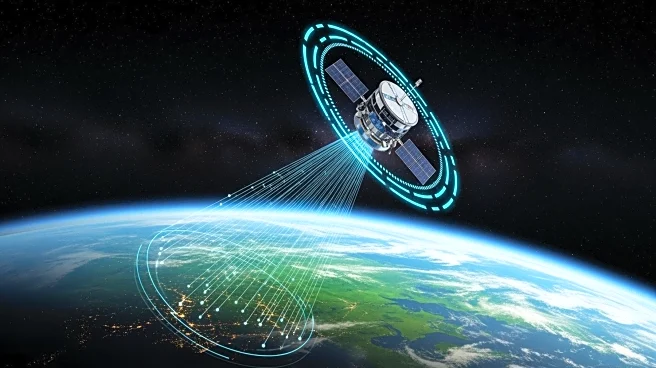What's Happening?
Several companies are exploring the feasibility of establishing data centers in space as a means to reduce carbon emissions and address land scarcity issues associated with terrestrial data centers. The ASCEND project in Europe is investigating the potential
of space-based data centers to utilize continuous solar energy, which is more accessible in space due to the absence of cloud cover and nighttime darkness. Thales Alenia Space, a France-based company, has conducted a study funded by the European Commission, suggesting that space data centers could offer a more eco-friendly solution for data processing. However, technological advancements are necessary for this vision to become a reality. The study highlights the need for a new type of rocket that emits significantly less carbon over its lifecycle compared to current models. Companies like Madari Space and Lonestar Data Holdings are already taking steps to test small computing components in orbit, with plans for larger deployments in the future.
Why It's Important?
The exploration of space-based data centers is significant as it addresses the growing demand for data processing while tackling environmental concerns. Data centers are known for their high energy consumption and carbon emissions, and moving them to space could alleviate these issues by harnessing solar energy more efficiently. This initiative could lead to a reduction in the carbon footprint of data centers, contributing to global efforts to combat climate change. Additionally, space-based data centers could provide a solution to land scarcity, as they do not require physical space on Earth. However, the economic viability and technological challenges, such as radiation and space debris, remain critical factors to consider. The success of this initiative could pave the way for new industries and technological advancements, potentially benefiting sectors reliant on data processing.
What's Next?
The next steps involve overcoming technological and economic challenges associated with space-based data centers. Companies like Madari Space and Lonestar Data Holdings are planning further tests and deployments, with Madari's first mission scheduled for 2026. The development of environmentally friendly rockets is crucial for reducing the carbon emissions of space launches. Additionally, addressing the risks of space debris and radiation is essential for the long-term sustainability of space-based data centers. Stakeholders, including governments and private companies, will need to collaborate to develop solutions for these challenges. The success of these initiatives could lead to a shift in how data centers are constructed and operated, potentially influencing global data processing strategies.
Beyond the Headlines
The move towards space-based data centers raises ethical and environmental concerns, particularly regarding space debris and the sustainability of increased space activity. The accumulation of human-made objects in orbit poses risks to existing space technologies and could lead to collisions that disrupt services on Earth. Furthermore, the development of counterspace technologies by various nations could impact the security and reliability of space-based data centers. These factors highlight the need for international cooperation and regulation to ensure the responsible use of space for data processing. The initiative also reflects broader trends in technological innovation and environmental consciousness, as industries seek sustainable solutions to meet growing demands.
















